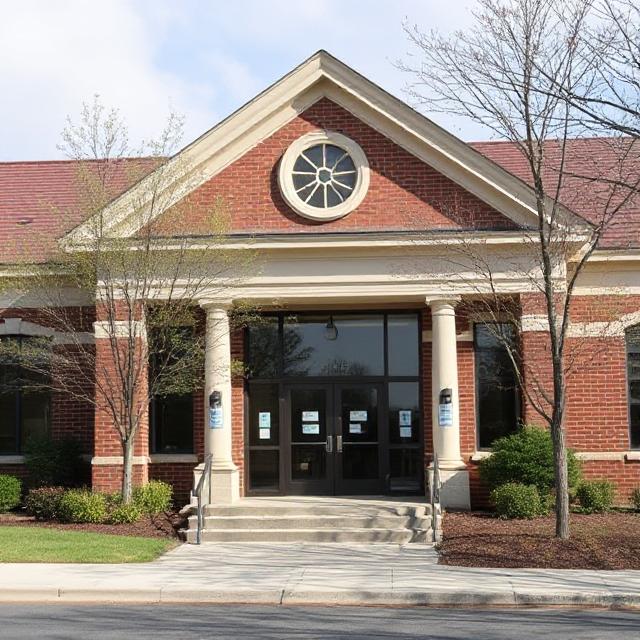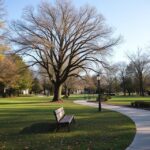Introduction to Leesville Community Library
The Leesville Community Library stands as a vital hub of knowledge, learning, and community engagement in Leesville Community Library. As a dedicated space for exploration and discovery, it offers a wealth of resources that can be harnessed for a variety of research purposes. Whether you’re a student, a community member, a professional, or a curious individual, understanding what you can best research at the Leesville Community Library can unlock numerous opportunities for personal growth and academic success. In this article, I will explore the diverse areas of research that the library is particularly well-suited for, along with tips on how to maximize its resources.
1. Local History and Community Heritage
One of the most significant aspects of the Leesville Community Library is its extensive collection related to local history and community heritage. For researchers interested in the history of Leesville Community Library and its surrounding areas, the library provides access to historical archives, newspapers, photographs, and local documents. These resources can help you explore the town’s founding, significant events, notable residents, and cultural evolution over the decades.
How to research local history effectively:
- Utilize archived newspapers to trace events, social changes, and community reactions during specific periods.
- Access historical maps and photographs to visualize the town’s development.
- Consult local government records, minutes from town meetings, and genealogical resources for family histories and civic development.
- Reach out to the library’s archivist or local history specialist for personalized guidance.
2. Academic and Educational Research
The library is a valuable resource for students and educators seeking academic research materials. It offers access to textbooks, academic journals, research papers, and reference materials across disciplines such as science, literature, history, and social sciences.
Key areas for academic research:
- Literature and Language Arts: The library’s collection of classic and contemporary literature, literary criticism, and language learning resources supports research papers, book reports, and literary analysis.
- Science and Technology: Access to scientific journals, encyclopedias, and research databases enables students to explore topics like biology, chemistry, physics, and environmental science.
- History and Social Sciences: Historical texts, government publications, and statistical data serve as foundational sources for projects and theses.
- Mathematics and STEM: The library may also offer access to math tutorials, problem-solving resources, and digital tools for STEM projects.
Maximizing academic research:
- Use library computers and digital resources such as EBSCOhost, JSTOR, or local databases.
- Attend research workshops or tutoring sessions offered by the library.
- Consult with librarians for recommendations on credible sources and research strategies.
3. Genealogy and Family History
Genealogical research is a popular pursuit at community libraries, and Leesville Community Libraryis no exception. With access to census records, birth and death certificates, marriage licenses, and family history databases, the library provides an excellent starting point for tracing lineage and understanding family backgrounds.
Research tips:
- Use the library’s genealogy section to access local records and archives.
- Utilize online genealogy platforms available through the library’s subscriptions.
- Attend genealogy workshops or seminars hosted by the library.
- Connect with local historical societies or family history groups coordinated through the library.
4. Community and Cultural Studies
The library serves as a conduit for understanding the cultural fabric of Leesville Community Library and its diverse communities. Researchers interested in sociology, anthropology, or cultural studies can find relevant resources, such as community surveys, cultural event records, and oral histories.
Research opportunities include:
- Studying the demographic changes over decades.
- Analyzing the impact of cultural festivals and community events.
- Exploring the social dynamics and challenges faced by residents.
- Documenting and preserving oral histories from long-term residents.
5. Business and Economic Research
For entrepreneurs, small business owners, or those interested in local economic development, the library offers resources such as business directories, economic reports, and market data. These materials can assist in developing business plans, understanding local markets, or conducting economic impact studies.
Research strategies:
- Review local economic development plans and reports.
- Use the library’s business databases for market research.
- Attend business workshops or networking events hosted by the library.
- Consult with librarians about accessing industry-specific publications.
6. Health and Wellness Information
The library provides access to health encyclopedias, medical journals, and public health resources. For individuals researching health topics, disease prevention, mental health, or wellness programs, the library is a reliable source of current and accurate information.
Tips for health research:
- Use reputable sources like the CDC, WHO, or peer-reviewed journals available through the library.
- Attend health literacy sessions or wellness programs offered on-site.
- Consult librarians for guidance on evaluating health information sources.
7. Digital and Technology Resources
In the digital age, the Leesville Community Library supports research through access to technology, digital archives, and online learning platforms. These resources are essential for research that involves digital literacy, coding, multimedia projects, or virtual collaboration.
Research opportunities include:
- Using computers and software for data analysis or multimedia creation.
- Accessing online courses or tutorials for skill development.
- Participating in digital literacy workshops.
- Exploring the library’s digital archives and eBooks.
8. Creative and Artistic Exploration
The library also fosters creativity, providing resources for artists, writers, and musicians. You can research art techniques, writing prompts, or musical theory through books, magazines, and workshops.
Research ideas:
- Study art history and contemporary art movements.
- Access writing guides, poetry anthologies, and story prompts.
- Explore music theory books or learn about local musical traditions.
- Participate in creative workshops or art exhibits organized by the library.
Conclusion
The Leesville Community Library is a rich resource that supports a wide spectrum of research interests. Its collections and services are tailored to meet the needs of diverse community members—from those delving into local history and genealogy to students conducting academic research, entrepreneurs exploring business opportunities, or residents seeking health information. By leveraging the library’s collections, digital resources, expert staff, and community programs, researchers can deepen their understanding, foster lifelong learning, and contribute to the collective knowledge of Leesville.
Maximizing your research at Leesville Community Library:
- Plan your research goals beforehand.
- Consult with librarians for guidance and resource recommendations.
- Take advantage of workshops, seminars, and community events.
- Utilize both physical and digital collections for comprehensive research.
In essence, the Leesville Community Library is not just a place to borrow books; it is a vibrant center for inquiry, discovery, and community engagement—making it an invaluable asset for best research practices across numerous fields.



